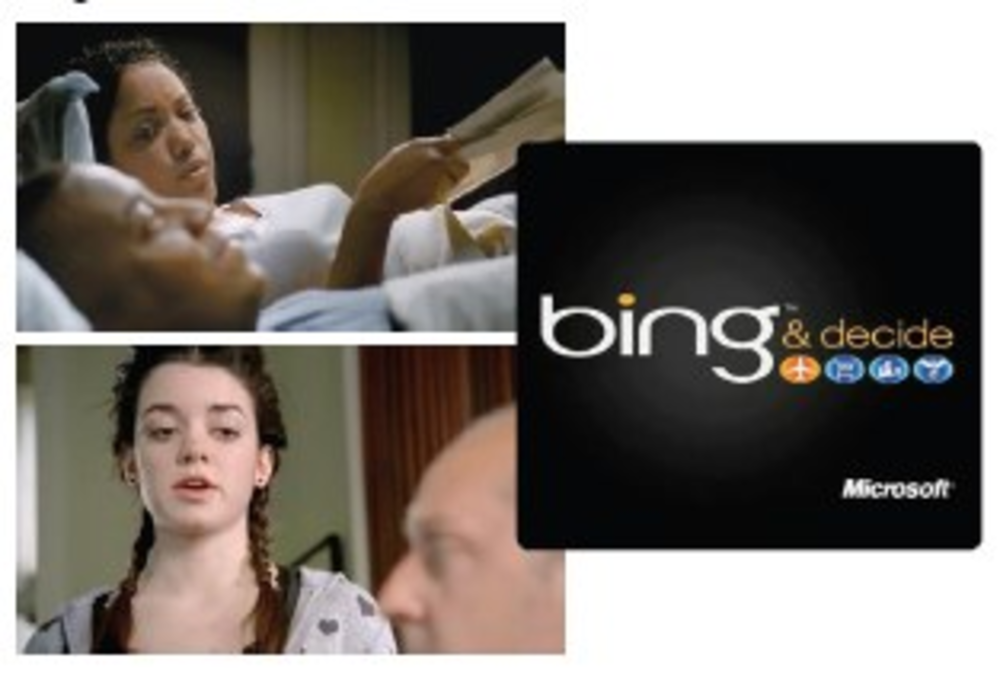Bing, the new search engine — sorry, decision engine — from Microsoft, launched in June with a slate of TV spots, print and online ads. Consider for a moment the challenge the creative team faced. Google has become literally synonymous with search, having beat out the other contenders, including Microsoft’s own Live Search, simply by being better. So it was far from obvious that the world was looking for a new search engine. For most people, online search is something of a commodity: a low-interest service that few of us give much thought to.
But people like choices: Coke has Pepsi, Hertz has Avis, and Windows has Mac, so there was an opportunity to create a perceived difference and play the role of a refreshing new option. This role is further strengthened by the announcement that Bing will become the search engine for Yahoo — as Yahoo CEO Carol Bartz put it, “Everyone wants a real alternative.”
In the campaign, Microsoft and its agency chose to differentiate Bing by emphasizing the quality of the results it presents. That “other” search engine — Google is never named — may give you lots of results, but they are random, and most are unrelated to what you were looking for. Google gives you the trees, whereas Bing shows you the wood. Hence the “decision engine” moniker. Search is so 2008: what we really want is decisions.
Setting aside whether Bing can actually deliver on this proposition, the spots themselves generally do a good job of communicating the premise and paying off the promise of a better search experience. The 30-second spots all follow the same story arc: two people are having a conversation, but the second person’s responses are random riffs on individual words spoken by the first person, who then becomes confused and frustrated. This elegantly highlights the search result quality issue, and allows for some humor too – my personal favorite is the “Hawaii” spot’s “Talk live with hot singles in your area… they’re waiting.”
In the tried and true tradition of whites that aren’t white enough, static cling, and dishwasher water spots, the Bing ads try to convince us we’re suffering from a debilitating malady we didn’t even know existed: search overload syndrome. Personally, I haven’t found this to be a pressing concern, but the Bing campaign does a nice job of making me aware of the problem and offering a solution.








